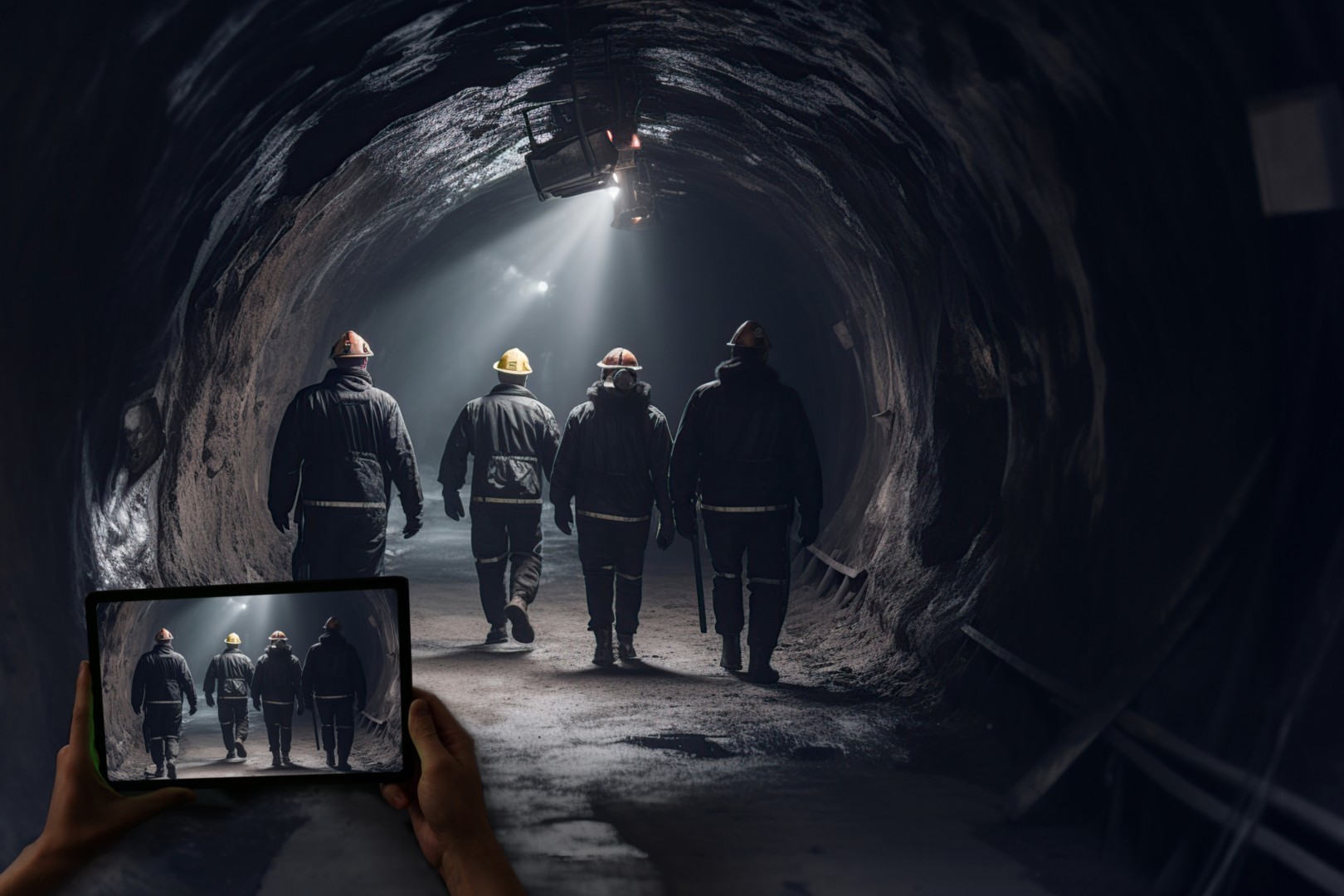EY refers to the global organization, and may refer to one or more, of the member firms of Ernst & Young Global Limited, each of which is a separate legal entity. Ernst & Young Global Limited, a UK company limited by guarantee, does not provide services to clients.
Insights
Asking the better questions that unlock new answers to the working world's most complex issue.
Services
EY helps clients create long-term value for all stakeholders. Enabled by data and technology, our services and solutions provide trust through assurance and help clients transform, grow and operate.
Industries
Discover how EY insights and services are helping to reframe the future of your industry.
See more
Case studies
Strategy and Transactions
How carve-outs positioned an automotive giant for future growth
12 Apr 2024EY Canada
About us
At EY, our purpose is building a better working world. The insights and services we provide help to create long-term value for clients, people and society, and to build trust in the capital markets.
See more
Top news
Recent Searches
Trending
-

Rethink customer experience as human experience
Technology is defining customer experience but differentiation comes from connecting to what is essentially human. Read more on studio.ey.com.
01 Jul 2024 Customer -

How can trust survive without integrity?
The EY Global Integrity Report 2024 reveals that rapid change and economic uncertainty make it harder for companies to act with integrity. Read our findings.
06 Jun 2024 -

Does today’s disruption provide the blueprint for tomorrow’s growth?
EY-Parthenon CEO Survey September 2025 reveals how leaders build confidence, resilience, and growth strategies amid disruption and transformation.
18 сент. 2025 CEO agenda
Mining today with EY – Episode 7:
Recent refundable tax credits and global minimum tax rules in mining and metals
Hear more from our industry advisors on the key considerations for tax reporting compliance, recent refundable tax credits and global minimum tax rules in the sector – and possible ways to address them all.
Featuring:
Michael Sabatino
EY Canada Tax Mining Leader
with:
Theo Yameogo
EY Americas Mining & Metals Leader, EY Canada Mining & Metals Leader
-
Theo Yameogo: Welcome, Michael. Thanks so much for joining me on this episode of Mining Today with EY.
Michael Sabatino: Thank you, Theo. Really excited to be here with you today.
Theo Yameogo: Let's get right into it. Michael, as the Tax leader for Mining & Metals in Canada, could you share some perspective on what's going on in the mining tax world with our clients today?
Michael Sabatino: Oh, great question, Theo. As you know, I've been working with clients in the mining and metals industry for several years now, and throughout that time we've seen increased demands being placed on organizations and their tax function to keep up with demands around transparency, reporting compliance and increasing complexity, not only in an effort to keep up with demands on being compliant, but also to identify opportunities to deliver value to their organizations.
Michael Sabatino: And I think some of the current topics that are top of mind for tax executives at this point in time that we are encountering on a day-to-day basis are BEPS 2.0, where large multinational organizations are keeping a close eye on developments in jurisdictions they operate in across the globe as these jurisdictions look to implement the global minimum tax rules into domestic laws.
Michael Sabatino: And organizations are assessing their readiness for this new tax regime. And then [federal] budget 2023 obviously introduced a raft of new measures and announced a lot of refundable tax credits, which have led to a lot of interest in this area as well.
Theo Yameogo: That's interesting, Michael. With regard to the global mining tax, are you able to share some more details about it? And then tell us more about who it applies to.
Michael Sabatino: This is commonly referred to amongst tax folks as BEPS 2.0 or a new shortened name GloBE, which is the global minimum tax. And it's a short name for a project launched by the OECD a few years ago that is aimed at addressing the tax challenges of digitalization and globalization of the economy. It's a global project with 141 countries participating, and agreement on the key parameters was reached back in late 2021, with further guidance released earlier this year in February.
Michael Sabatino: And countries are expecting to adopt the rules into their local legislation with the intention to have them take effect from 2024. In fact, in Canada, budget 2023 proposes to implement these rules in 2024. Some countries around the world, South Korea and Japan, have recently enacted local versions of these rules, and we expect to see a lot more introduced over the course of 2023.
Michael Sabatino: And at the heart of it, what it is, it's a minimum tax which will operate as a top-up tax levied on multinational companies with no taxed foreign income up to an agreed minimum rate of 15%. It's intended to apply to groups where revenues are in excess of €750 million. So, the larger end of multinational groups. But we estimate that it's going to impact over 4,500 companies across the world.
Theo Yameogo: Now, in preparation for BEPS 2.0, like you called it, what pragmatic actions should mining companies be taking and who should be involved?
Michael Sabatino: Another great question Theo, thank you! The base for the global minimum tax is the financial statements which will drive the calculation of this tax liability. This is in order to address the requirement for a consistent tax base. So being prepared is going to require significant cross-functional coordination across tax, accounting, legal, IT and systems. Because this new regime is actually over the top of the existing tax regimes and will involve stakeholders across the organization.
Michael Sabatino: In effect, one is going to now have almost a third set of books: your accounting books, your tax books, and now a global calculation, or global minimum tax calculation, made over at the top. So, readiness for this is going to require companies to really act now if they haven't already started, as most clients have begun to assess these impacts.
Michael Sabatino: And we see that companies will need to consider automating aspects of their tax compliance functions to meet these increasing demands for data disclosure and have a single source of information to address these challenges. I think there's also tremendous opportunity for companies to assess the current operating models, the current systems, their structure as they move into the minimum tax and seek to see whether there's opportunities to optimize systems or processes as well as structure.
Michael Sabatino: And I think some of the immediate actions that come to mind there that we would recommend companies be looking at is monitoring the OECD and local tax legislative developments in the jurisdictions you operate in, assess the technical risks and opportunities. do an initial quantitative impact assessment based on historical data to get a sense of what the impact may be, look at the data and processes and system requirements and identify gaps in order to address those as soon as possible.
Michael Sabatino: Also preparing for 2024 interim and annual tax provision reporting, even though these rules are applying for interim and beyond, accounting is going to require disclosure and addressing some of these issues much earlier than the actual compliance process. And to that and longer term, preparing for compliance and filings likely to be in 2026 and eventual tax audits and controversy as these new rules are bedded down.
Michael Sabatino: So, I encourage everybody to reach out to your EY advisor. We've developed a comprehensive, risk-based approach to dealing with or addressing these challenges. And we are here to help you as you undertake this journey.
Theo Yameogo: In your opening remarks, Michael, you mention the federal budget. Can you give more details around why we see a lot of hype about the budget and also, what you think the industry can expect from it?
Michael Sabatino: Thanks, Theo. The budget 2023 announced a raft of targeted tax credits recently aimed at driving the transition to renewable energy and promote the development of clean technologies. While most of these measures are not directly targeted at the mining industry, they will spur additional investment in infrastructure and development that will provide a much-needed boost in demand for minerals.
Michael Sabatino: There was a specific measure announced in the budget speech aimed at the extraction and processing of six key specified critical minerals in the form of a refundable 30% tax credit, which is refundable on the cost of investment in new machinery and equipment for extraction and processing and recycling of lithium, cobalt, nickel, graphite, copper and some other rare earth elements.
Michael Sabatino: Government had previously announced over a year ago a significant investment or increase in the refundable tax credits applicable to investments in, flow-through shares that are targeted at critical mineral exploration. This new measure is a welcome spur to investment into the upstream part of the mineral value chain and incentivizes further investment in the extraction and processing of these key critical minerals.
Theo Yameogo: Michael, any other credits of interest?
Michael Sabatino: There were further announcements around some other interesting areas. For example, the announcement of a 15% refundable tax credit for investments in non-carbon dioxide emitting energy systems, which include solar, photovoltaic, wind and small modular nuclear reactors, which could be a significant benefit for mines with remote operations opting to use alternatives to fossil fuels at their sites.
Theo Yameogo: Thanks for joining this episode today, Michael. I've learned a lot and I'm sure our audience did too.
Michael Sabatino: Thanks for having me, Theo. Certainly, lots of change coming down, but change brings opportunities, so looking forward to speaking to you again.
Tax services
Our globally coordinated tax professionals offer connected services across all tax disciplines to help you thrive in an era of rapid change. We combine our exceptional knowledge and experience with the people and technology platforms that make us an ideal partner for your tax-related needs.
EY Americas Mining and Metals Centre of Excellence
The EY Americas Mining and Metals Centre of Excellence offers companies across North and South America access to cutting-edge services and innovation-led solutions to help meet the most pressing needs of mining and metals businesses today and in the future.
Our latest thinking

In-depth tax guide empowers mining organizations to thrive
Fourth edition of EY’s Guide to the Taxation of Mining Operations offers fresh updates based on real-world changes in the Canadian landscape.

Top three ways Canadian mining can lead decarbonization
Canada’s mining and metals industry has the opportunity to emerge as a superpower in a low-carbon world by supplying critical minerals in a whole new way.